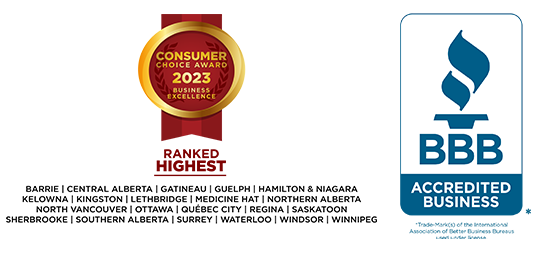How to recognize the emotional and physical side effects of debt
The effects of debt can vary from person to person. You might worry over a $1,000 credit card debt, while your friend might not give a second thought until it’s in the tens of thousands. But carrying debt can be hard on anyone and have damaging effects on household health.

Trouble at home and at work
Debt frequently strains relationships as families wage daily battles with their finances. Blame and resentment slowly bubble to the surface and eventually boil over. Arguments about money are one of the most cited reasons for relationship breakdowns — the impacts of which leave adults and children feeling anxious, stressed, and ashamed.
Worrying about money can also increase stress levels at work. The Financial Consumer Agency of Canada (FCAC) reports employees dealing with financial stress are twice as likely to report poor overall health and are four times as likely to suffer from sleep problems, headaches and other illnesses.
It also says financial stress can lead to more serious health problems, such as heart disease, hypertension, depression, and anxiety. Employees who report money problems are five times more likely to be distracted at work, with a staggering 46 percent of Canadians reporting spending three or more hours per week dealing with financial issues.
Turning a blind eye
The common responses of avoidance and denial are rarely helpful and often push people deeper into debt and as they seek to sooth their anxieties with further spending.
Not facing the reality means not knowing when to stop. Not dealing with the bills can also result in late charges and possible interest rate increases. And only making the minimum payments means a steadily growing balance as interest accrues.
How do you know if you’re in trouble?
Some of the most common signs of financial trouble include:
- Pulling money from one credit card to pay another
- Bouncing cheques or pre-authorized payments
- Experiencing frequent non-sufficient funds charges on accounts
- Consistently going into overdraft
- Maxing out credit cards and lines of credit
It’s usually not how much you owe that causes financial and health problems. It is when you can no longer afford to maintain your payments, that debt becomes a serious issue.
The MNP Debt Scale can help you understand your debt to income ratio and get an overall idea of how well you’re currently managing. Similarly, our Debt Calculator can help you compare debt solutions to identify which options may provide the fastest, most affordable relief.
Reach out early to get the help you need
Don’t let shame or fear get in the way of accessing the help you need. You’re not alone. Problem debt is far more common than you might think, and you have many options to get the financial fresh start you deserve.
Reach out to a Licensed Insolvency Trustee the moment you recognize the signs of financial difficulties — whether in the form of family tension or not being able to make your monthly payments. We offer Free Confidential Consultations to assess your financial situation and identify all your opportunities for a full and permanent recovery.
Don’t wait until you can’t take it anymore. The sooner you begin addressing the issue, the faster and smoother your journey back to health and happiness will be.

